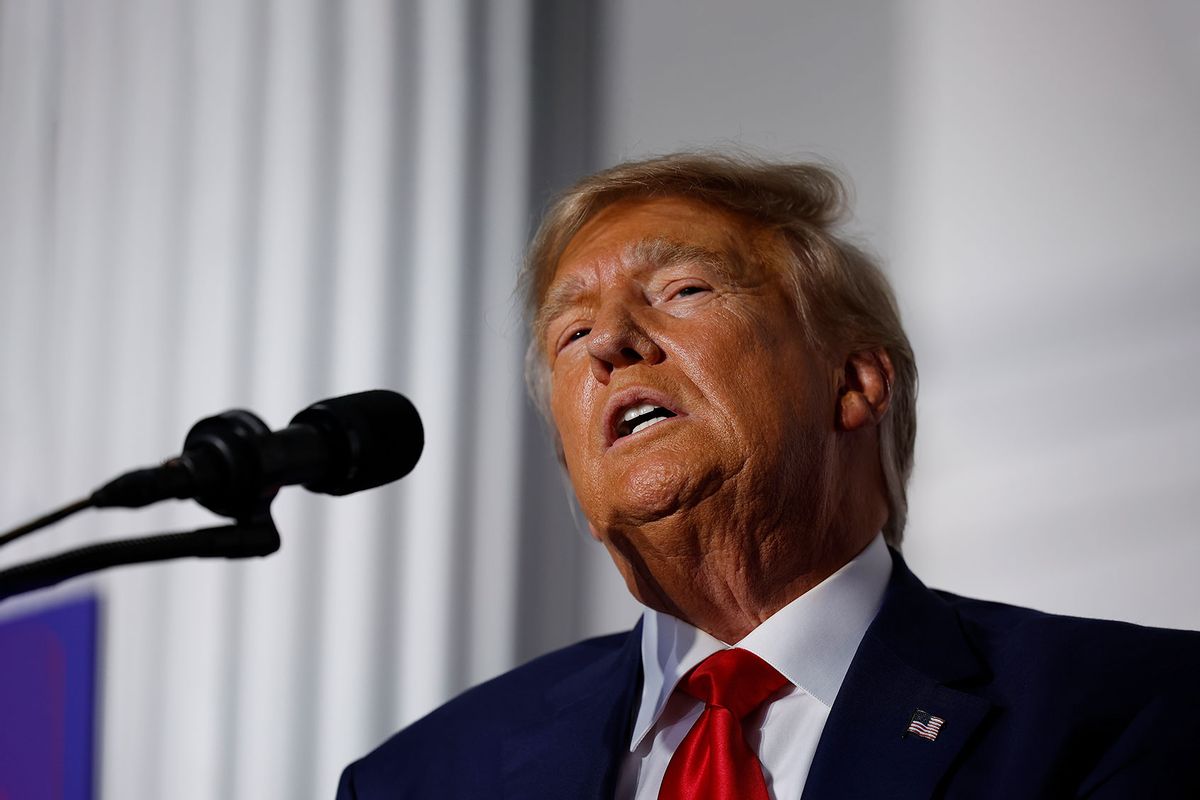Special counsel Jack Smith's target letter to former President Donald Trump indicated that he may be charged with violating a civil rights statute from the post-Civil War Reconstruction era, three sources told The New York Times.
The letter mentioned three criminal statutes in the grand jury investigation regarding Trump's attempts to overturn the 2020 election results, two people familiar with the matter told The Times. Two of these statutes included conspiracy to defraud the government and obstruction of an official proceeding. But a third "surprise" statute cited in the letter included Section 241 of Title 18 of the United States Code, which makes it a crime to "conspire to injure, oppress, threaten, or intimidate any person" in the "free exercise or enjoyment of any right or privilege secured to him by the Constitution or laws of the United States."
"The benefits for using Section 241 are three-fold," Anthony Michael Kreis, a Georgia State University law professor, told Salon. "First, the statute isn't novel in terms of applying it to election fraud. Second, is that the DOJ can go after the election fraud scheme and tie it to the insurrection for enhanced penalties. Third, the combination of the first two benefits allows Trump to be tried for January 6th without litigating whether his speech before the riots at the Capitol, which would be the basis of a free-standing incitement charge, is protected by the First Amendment."
After the Civil War, Congress passed this statute to allow federal agents with a means to pursue Southern whites, including members of the Ku Klux Klan, who resorted to terrorism to hinder formerly enslaved African Americans from voting. However, in modern times, it has been applied more widely, even encompassing cases involving voting fraud conspiracies.
"Essentially, Trump could be charged for entering a conspiracy to deprive persons of their rights guaranteed under the Constitution and that conspiracy caused bodily injury, which would increase the penalty for the unlawful conspiracy," Kreis said.
While it remains unclear exactly how the statute may be applied, it is typically used when someone acting under "the color of law or authority" deprives a person of a right, pointed out former Assistant U.S. Attorney William "Widge" Devaney.
This can happen in instances of police brutality when the state doesn't move forward with charges or a grand jury in the state doesn't vote on an indictment and the federal government decides to step in.
"In the context of a policeman, it makes a lot of sense under the color of authority," Devaney told Salon. "Clearly, Trump acting as president is acting under the color of authority. So that part we get."
We need your help to stay independent
But Devaney added that it will be interesting to see how the indictment lays out which specific rights were deprived in this scenario.
"Is it the right of people to have their votes properly counted? Is it the right of the properly elected electors – their right to vote in the Electoral College? Is it Congress' right to exercise their ability to certify the election?" Devaney said.
One possible theory of the case, Kreis pointed out, could essentially go something like this: Trump knew he didn't win the election so "he entered a conspiracy to discount ballots when he worked to overturn the election contrary to the law's guarantee of equal protection and due process for voters. That conspiracy fomented violence on January 6th and injuries resulted."
Want a daily wrap-up of all the news and commentary Salon has to offer? Subscribe to our morning newsletter, Crash Course.
The other statute referenced in the indictment, the conspiracy to defraud the government, is a "blunderbuss statute that encompasses a lot of combat," Devaney said
"That goes squarely, I think, to the heart of the fake electors' scheme, you could probably bring the January 6 riot portion of that in as part of the overall conspiracy to defraud the United States," he added.
Similarly, a portion of the witness tampering statute discusses a person who corruptly seeks to influence an official proceeding. "That proceeding would assumably be the certification of the election," Devaney said.
He added that he was surprised to not see a conspiracy to obstruct Congress, "but that same conduct can be covered under these other statutes, which might be more readily provable than a conspiracy to obstruct Congress or even a seditious conspiracy."
Read more
about the Jan. 6 probe
- Legal scholar: Leaked possible Trump charges could "lead to a much faster conviction"
- Experts: Jack Smith's latest move means Trump can't use Judge Cannon to prevent pre-election trial
- Ex-U.S. attorney: Evidence in Jan. 6 indictment "will be much stronger" than Trump defenders think
- "Very strange quietness": Legal experts think "there's something up" with Mark Meadows
- Expert: Trump Jan. 6 indictment could "accelerate" Judge Aileen Cannon's timeline in documents case



Shares